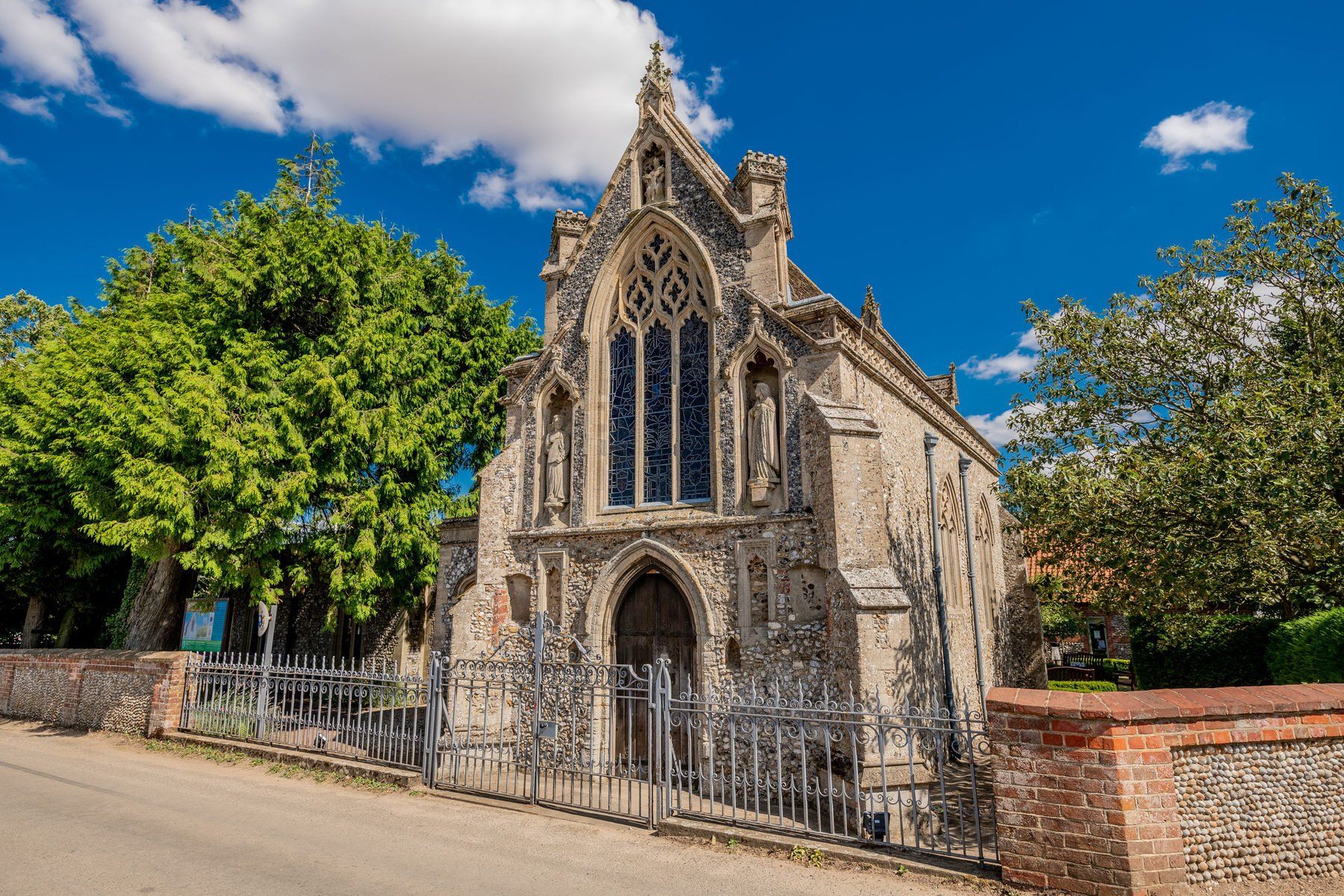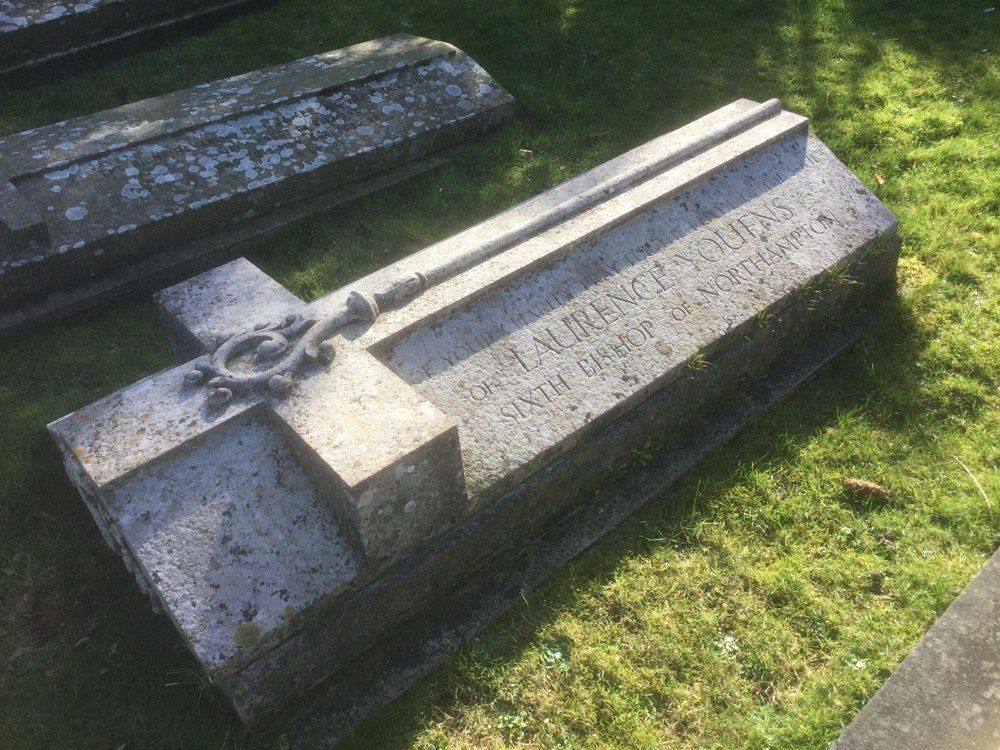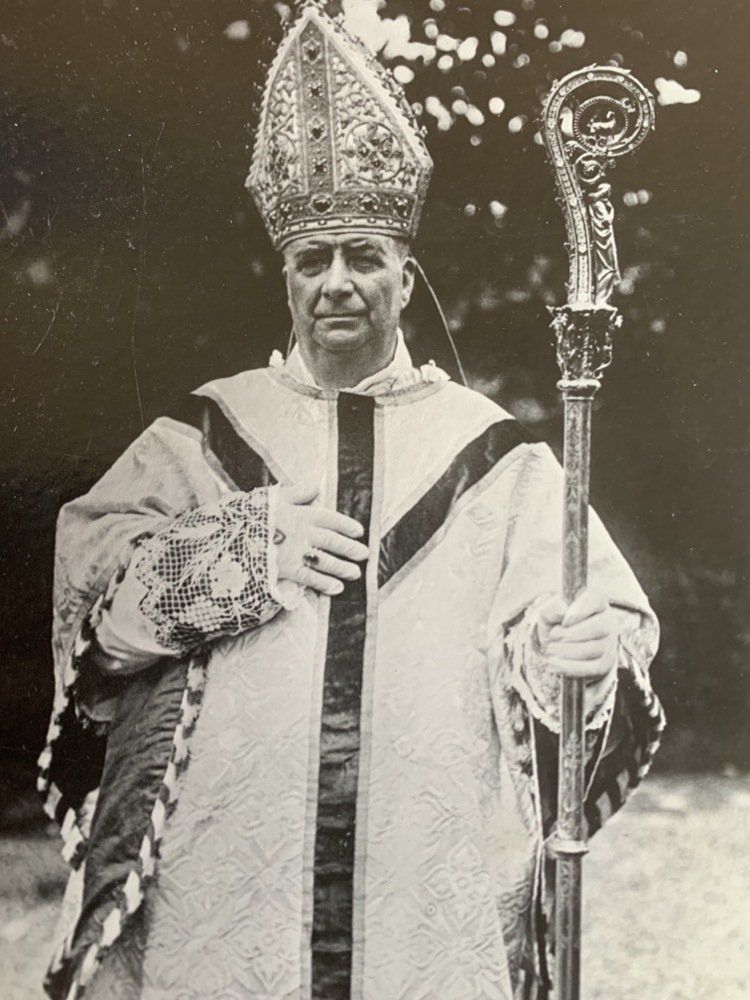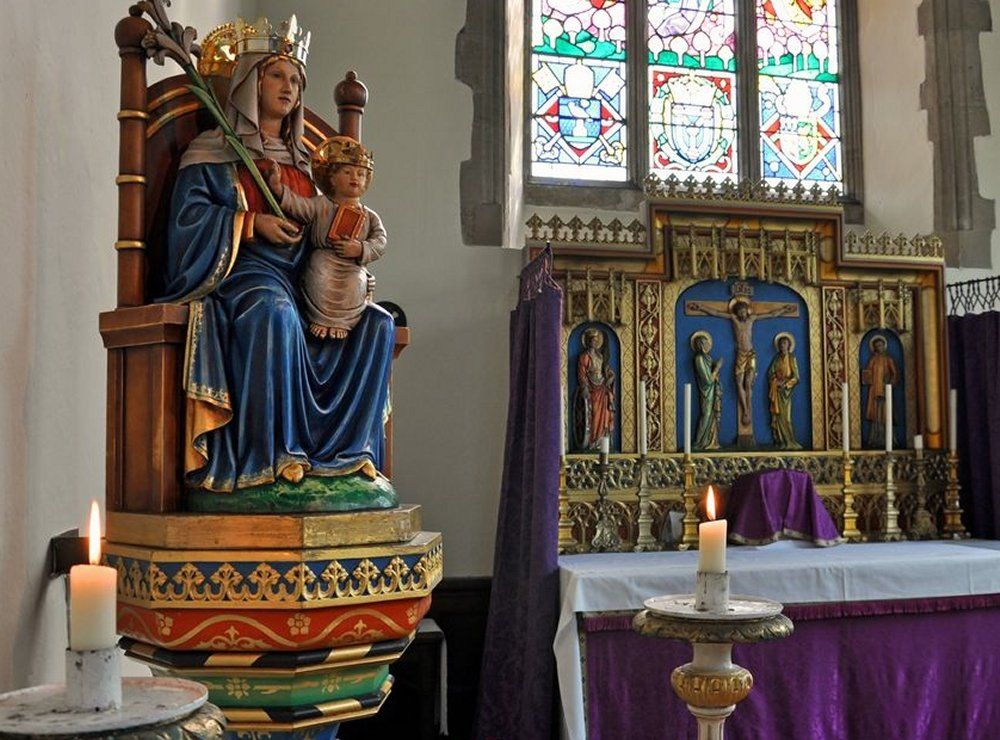Belmont's Walsingham Connection
Belmont Webmaster • April 6, 2020
One of our Oblates, Menna McBain, sheds some light on little-known connection between Belmont and Walsingham. As we have remembered the English National Shrine of Our Lady with the Rededication of England as Mary's Dowry, it is fitting to recall the presence of the body of a bishop amongst the graves of Belmont's abbots.
Many people know that Belmont has a connection to Walsingham because the present Rector of the Shrine, Monsignor Jonathan Armitage, is an oblate of Belmont. Fewer people know that there is an older connection in the person of Bishop Laurence Youens of Northampton, who died on 14th November 1939 and who is buried in Belmont Abbey graveyard.
Bishop Youens was born in High Wycombe, Bucks, on 14th December 1873, and was converted from Anglicanism to Catholicism. He was ordained a priest on 30th June 1901, the first Catholic priest to be ordained in High Wycombe since the Reformation. He served for some time as a missionary in north Africa, and became bishop of Northampton at the age of 60. He was greatly involved in creating the Catholic National Shrine of Our Lady at Walsingham.
On 15th August 1934, the Feast of the Assumption, Bishop Youens celebrated the first public Mass in the Slipper Chapel for 400 years, and on the following Sunday, 19th August, he preached at a Mass in what is now St John the Baptist’s Catholic Cathedral in Norwich, celebrated by the Archbishop of Cardiff in the presence of Cardinal Francis Bourne, when he declared that he saw the finger of God in the recovery of the ancient chapel. After the Mass, a huge number of clergy and laity travelled by train to Walsingham, where Cardinal Bourne, in the presence of the Bishops declared it to be the National Shrine of Our Lady in England. In November 1935, Bishop Youens made Walsingham an episcopal parish and appointed another former Anglican, Father Bruno Scott James, as custodian of the Shrine that had no pilgrims, and a parish containing only two Catholics, both converts!
In 1937, he brought the Franciscans back to Walsingham, and provided them with a house in Friday Market Place. They purchased land near the Black Lion Inn, and Bishop Youens gave Pontifical Benediction at an altar on the site of the present-day Catholic Parish Church of the Annunciation. Sadly, during the war their numbers dwindled, and they were forced to withdraw in 1948, but now 70 years on, four Franciscans have returned to live and work in Walsingham. Bishop Youens would have been delighted. One has only to look at Walsingham today to appreciate the strength of his faith and commitment.
Bishop Youens died on 14th November 1939, in office, seated at his desk writing a letter to his flock inspiring courage and hope in the face of the approaching conflict. He made several retreats at Belmont Abbey, and must have loved it so much to be buried here.
May he rest in peace.













